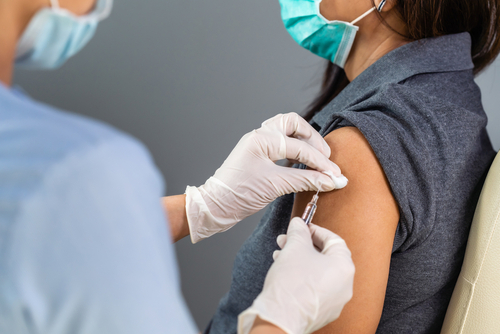
Pfizer and BioNTech reported on Monday that their joint COVID-19 vaccine candidate is more than 90 percent effective at preventing infection among those without evidence of prior exposure.
“Today is a great day for science and humanity,” Dr. Albert Bourla, Pfizer chairman and CEO, said. “The first set of results from our Phase 3 COVID-19 vaccine trial provides the initial evidence of our vaccine’s ability to prevent COVID-19. We are reaching this critical milestone in our vaccine development program at a time when the world needs it most with infection rates setting new records, hospitals nearing over-capacity and economies struggling to reopen.”
The results stem from the drug’s first interim efficacy analysis in a Phase Three study. That analysis found 94 confirmed cases of COVID-19 in trial participants, from among 43,538 total volunteers. Further, no serious safety concerns were observed, although safety and efficacy data continues to be collected.
Efficacy was determined based on seven days after the second dose of the vaccine, to show its level of protection provided 28 days after the initiation of the vaccine. Going forward, the efficacy could shift as the full data is pulled together, but the current analysis considered the case split between vaccinated individuals and those given a placebo. All investigation was conducted by an external Data Monitoring Committee.
The current clinical trial has been ongoing since July. As of Nov. 8, 38,955 of participants have received a second dose of the vaccine. Enrollment is ongoing, and will continue through to a final analysis, which triggers when 164 COVID-19 cases have accrued among participants. Secondary endpoints for that final analysis will include evaluating efficacy based on cases generated 14 days after the second dose as well.
“This is a victory for innovation, science and a global collaborative effort,” professor Ugur Sahin, BioNTech co-founder and CEO, said. “When we embarked on this journey 10 months ago this is what we aspired to achieve. Especially today, while we are all in the midst of a second wave and many of us in lockdown, we appreciate even more how important this milestone is on our path towards ending this pandemic and for all of us to regain a sense of normality.”
The companies expect to prepare the necessary safety and manufacturing data to submit to the U.S. Food and Drug Administration for acquisition of an Emergency Use Authorization. Based on current projections, this should occur in the third week of November, after a final safety data milestone is achieved. Following this, the companies estimate they could produce up to 50 million vaccine doses by the end of the year, and up to 1.3 billion doses in 2021.
The U.S. Department of Health and Human Services and the Department of Defense have an agreement with Pfizer for large-scale production and nationwide delivery of 100 million doses of a COVID-19 vaccine in the United States following the vaccine’s successful manufacture and approval. The agreement also allows the U.S. government to acquire an additional 500 million doses.




